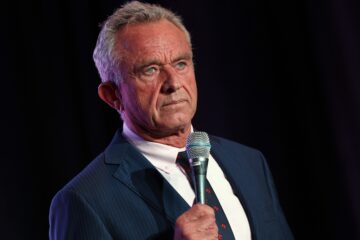Climate change is a pressing issue that, unfortunately, evangelical Christians are refusing to buy stock in.
The evangelical faith is a subdivision of Protestant Christianity that combines the beliefs of denominations such as Reformation, Pentecostal, and Anabaptist. The four main tenets of evangelism are salvation through religious conversion, participating in missionary work/spreading God’s word, believing that the Bible is the ultimate authority in life, and placing emphasis on the crucifixion of Jesus.
Climate change has been addressed by scientists as a growing concern that could prematurely put an end to modern society. It is projected that by 2050, major cities including Charleston, New Orleans, and Miami will be completely submerged if action is not taken to better the climate. Despite the rising threat, evangelical Christians remain skeptical.
According to research conducted by Pew – a research center specializing in social issues – only 28% of evangelical Christians believe that humans contribute to global warming. Almost two-thirds of those surveyed insisted that there was no “solid evidence” that climate change even exists.
While some evangelicals believe that climate change is a sign of the coming apocalypse, there are others who believe that it is a “liberal hoax” manufactured by the Democratic party in order to steer Americans away from religion and towards dependency on the government. While there are many different ethnicities and political opinions represented in the Christian faith, the evangelical Christians referred to in this article are predominantly Caucasian and politically conservative.
Katharine Wilkinson, a climate change activist, wrote Between God and Green: How Evangelicals Are Cultivating a Middle Ground on Climate Change in 2012 to address what Wilkinson referred to as “the political will and public engagement necessary to fuel robust action on global climate change.” The book focuses on how there are evangelical Christians who are aiming to protect the environment and persuade other evangelicals to follow their “duty to protect God’s creation.”
Wilkinson also addresses the fact that skepticism regarding climate change has increased dramatically since the turn of the century. A potential reason for the disbelief that climate change is a pressing issue could be from the types of media that Americans are exposed to. Conservative news sources often downplay global warming as a strictly liberal belief, one that is founded in false statistics, according to many Republican politicians.
The Young Evangelicals for Climate Change are a nonprofit group dedicated to mending the gap between religious belief and the reality that climate change is an increasingly relevant concern. Their work also focuses on helping marginalized groups and preserving minority cultures, two issues which are directly impacted by climate change. Neighborhoods impacted by generational poverty – especially in the Southeastern part of the United States – are historically more likely to house people of color (due to systemic racism not allowing minorities the same opportunities for success as white Americans) and are often in areas that are prone to flooding as sea levels rise.
Dan Kahan, a social scientist, argues that evangelicals feel strongly about climate change due to not believing in evolution, and so therefore is not as reliable as the media makes it out to be. He theorizes that the fear of being excommunicated for disagreeing with the church also plays a part in why evangelicals are so outspoken about their environmental beliefs.
Climate change is a pressing matter, as it is estimated that sea levels rise by approximately 8 inches a year. Even with startling facts and public demands for change, middle-class white evangelicals still refuse to believe that climate change even exists.
Photo by Olivia Esselman




